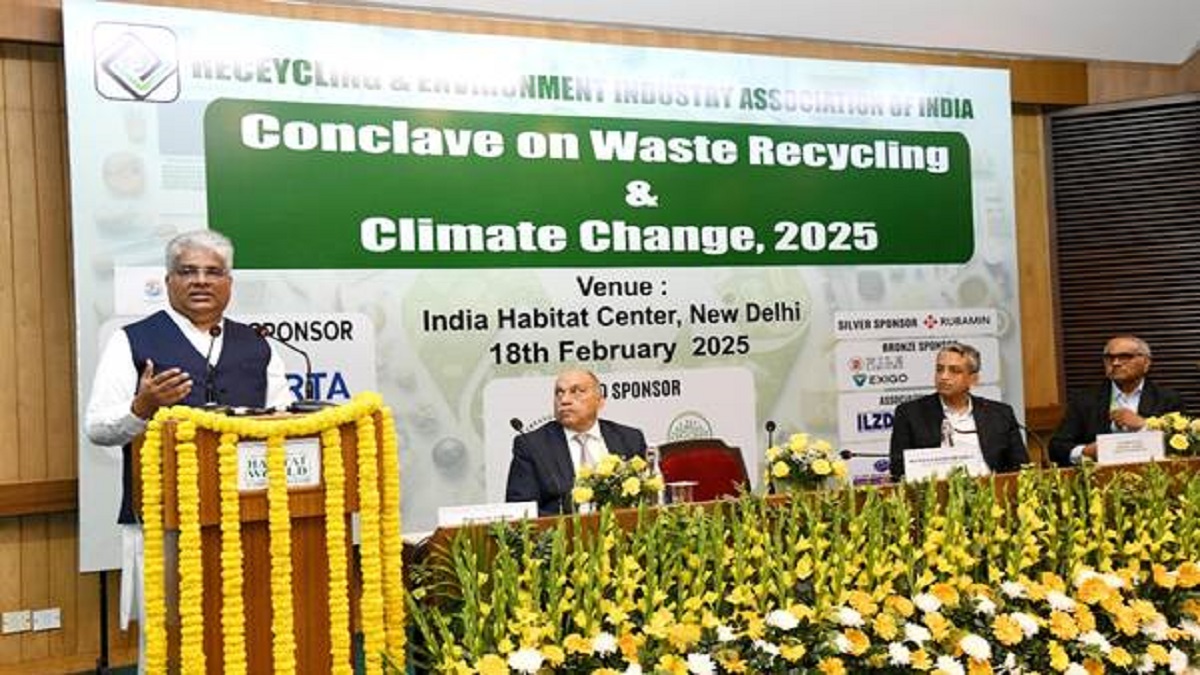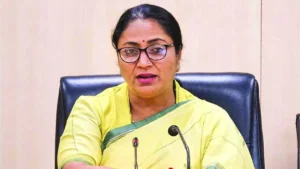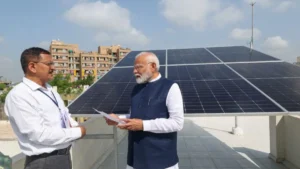On February 18, 2025, Union Minister for Environment, Forest and Climate Change, Shri Bhupender Yadav, inaugurated the ‘Waste Recycling and Climate Change 2025’ conclave, organized by the Recycling and Environment Industry Association of India (REIAI). The event focused on how waste recycling can contribute to environmental sustainability and economic growth in India. The minister highlighted the importance of transitioning to a circular economy, which can reduce waste, improve resource efficiency, and generate employment.
Why is Waste Management a Critical Issue in India?
India generates nearly 62 million tonnes of waste annually, with rising amounts of plastic, electronic, and hazardous waste. The traditional model of ‘take, make, and dispose’ is putting immense pressure on landfills and causing severe environmental damage. Minister Bhupender Yadav emphasized the need to move towards a circular economy where products are designed for reuse and recycling. Such an approach can conserve natural resources, reduce pollution, and create economic opportunities.
How is the Indian Government Supporting Waste Recycling?
Under Prime Minister Narendra Modi’s leadership, the government is focusing on turning waste into a valuable resource through initiatives like ‘Waste to Wealth’. Projections indicate that by 2050, India’s circular economy could reach a market value of $2 trillion and generate 10 million jobs. The government has implemented key regulations such as Extended Producer Responsibility (EPR), which makes manufacturers responsible for recycling materials like plastic, e-waste, batteries, and tyres. This policy encourages industries to invest in recycling and helps formalize the waste management sector.
What Strategies Can Strengthen the Circular Economy?
During the conclave, Minister Yadav outlined four key strategies to improve waste recycling and advance the circular economy:
-
Redesigning Products for Circularity: Products should be designed with recyclability and reusability in mind. This includes using biodegradable materials, modular components, and reducing single-use plastics.
-
Investment in Recycling Technologies: Businesses need to adopt advanced waste processing technologies to improve material recovery and reduce landfill waste.
-
Strengthening Industry Collaboration: Companies should work together across industries to develop closed-loop production systems and increase the use of secondary raw materials.
-
Raising Consumer Awareness: Public awareness campaigns and incentives can encourage individuals to reduce waste, recycle effectively, and support sustainable products.
The conclave emphasized that effective waste management is not just an environmental necessity but also an economic opportunity. By integrating recycling into business models, industries can contribute to sustainable development while boosting the economy. The government, industries, and consumers must work together to build a stronger circular economy in India.
Key Highlights of ‘Waste Recycling and Climate Change 2025’ Conclave
| Aspect | Details |
|---|---|
| Why in News? | Union Minister Bhupender Yadav inaugurated the conclave on February 18, 2025. |
| Organizer | Recycling and Environment Industry Association of India (REIAI). |
| Focus Area | Circular economy, waste recycling, and climate change solutions. |
| India’s Waste Generation | 62 million tonnes annually, including plastic, electronic, and hazardous waste. |
| Government Initiative | ‘Waste to Wealth’ initiative to turn waste into an economic resource. |
| Economic Projection | Circular economy market to reach $2 trillion by 2050, creating 10 million jobs. |
| Key Policy | Extended Producer Responsibility (EPR) for plastic, e-waste, batteries, tyres. |
| Strategies Discussed | Product redesign, recycling technology, industry collaboration, consumer awareness. |
| Objective | Reduce landfill waste, boost sustainability, and drive economic growth. |



 Delhi to Implement ‘Rah-Veer’ Scheme to ...
Delhi to Implement ‘Rah-Veer’ Scheme to ...
 2 Years of PM Surya Ghar Scheme: Rooftop...
2 Years of PM Surya Ghar Scheme: Rooftop...
 From Seva Teerth, PM Modi Announces PM R...
From Seva Teerth, PM Modi Announces PM R...








